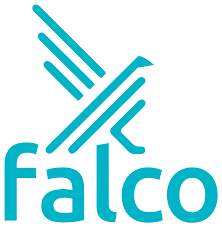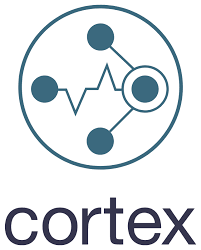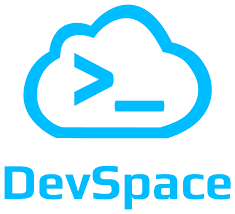CNCF
Cloud Native Computing Foundation
The Cloud Native Computing Foundation (CNCF) is a Linux Foundation project that was founded in 2015 to help advance container technology and align the tech industry around its evolution.
CNCF Projects
CNCF technology projects are cataloged with a maturity level of Sandbox, Incubated, and Graduated, in ascending order. The defined criteria include rate of adoption, longevity and whether the open source project can be relied upon to build a production-grade product. CNCF's process brings projects in as incubated projects and then aims to move them through to graduation, which implies a level of process and technology maturity. A graduated project reflects overall maturity; these projects have reached a tipping point in terms of diversity of contribution, community scale/growth, and adoption.

Graduated projects
Containerd Containerd is an industry-standard core container runtime. It is currently available as a daemon for Linux and Windows, which can manage the complete container lifecycle of its host system. In 2015, Docker donated the OCI Specification to The Linux Foundation with a reference implementation called runc. Since February 28, 2019 it is an official CNCF project. Its general availability and intention to donate the project to CNCF was announced by Docker in 2017.
CoreDNS CoreDNS is a DNS server that chains plugins. Its graduation was announced in 2019.
Envoy
Originally built at Lyft to move their architecture away from a monolith, Envoy is a high-performance open source edge and service proxy that makes the network transparent to applications. Lyft contributed Envoy to Cloud Native Computing Foundation in September 2017.
etcd
etcd is a distributed key value store, providing a method of storing data across a cluster of machines.It became a CNCF incubating project in 2018 at KubeCon+CloudNativeCon North America in Seattle that year. In November, 2020, the project became a graduated project.
Fluentd
Fluentd is an open source data collector, allowing the user to "unify the data collection and consumption for a better use and understanding of data." Fluentd joined CNCF in 2016 and became a graduated project in 2019. 2020.
Helm
Helm is a package manager that helps developers "easily manage and deploy applications onto the Kubernetes cluster." It joined the incubating level in June 2018 and graduated in April 2020.
Jaeger
Created by Uber Engineering, Jaeger is an open source distributed tracing system inspired by Google Dapper paper and OpenZipkin community. It can be used for tracing microservice-based architectures, including distributed context propagation, distributed transaction monitoring, root cause analysis, service dependency analysis, and performance/latency optimization. The Cloud Native Computing Foundation Technical Oversight Committee voted to accept Jaeger as the 12th hosted project in September 2017 and became a graduated project in 2019. In 2020 it became an approved and fully integrated part of the CNCF ecosystem.
Kubernetes
Kubernetes is an open source framework for automating deployment and managing applications in a containerized and clustered environment. "It aims to provide better ways of managing related, distributed components across varied infrastructure." It was originally designed by Google and donated to The Linux Foundation to form the Cloud Native Computing Foundation with Kubernetes as the seed technology.[34] The "large and diverse" community supporting the project has made its staying power more robust than other, older technologies of the same ilk. In January 2020, the CNCF annual report showed significant growth in interest, training, event attendance and investment related to Kubernetes.
Definition of CNCF
Cloud native technologies empower organizations to build and run scalable applications in modern, dynamic environments such as public, private, and hybrid clouds. Containers, service meshes, microservices, immutable infrastructure, and declarative APIs exemplify this approach. These techniques enable loosely coupled systems that are resilient, manageable, and observable. Combined with robust automation, they allow engineers to make high-impact changes frequently and predictably with minimal toil. The Cloud Native Computing Foundation seeks to drive adoption of this paradigm by fostering and sustaining an ecosystem of open source, vendor-neutral projects. We democratize state-of-the-art patterns to make these innovations accessible for everyone.



CNCF Initiatives
CNCF hosts a number of efforts and initiatives to serve the cloud native community, including:
Events
CNCF hosts the co-located KubeCon and CloudNativeCon conferences, which have become a keystone events for technical users and business professionals seeking to increase Kubernetes and cloud-native knowledge. The events seek to enable collaboration with industry peers and thought leaders.The North America event was moved to an entirely remote model for its 2020 season due to the COVID-19 pandemic.
Diversity scholarships and stance on equity and inclusion
CNCF's Diversity Scholarship program covers the ticket and travel to the KubeCon + CloudNativeCon conference. In 2018, $300,000 in diversity scholarships was raised to enable attendees from diverse and minority backgrounds to make the journey to Seattle for KubeCon and CloudNativeCon. In August 2020, Priyanka Sharma stated that CNCF stands "in solidarity" with the Black Lives Matter movement. Sharma also stated that she was "personally involved in a project to eradicate racially problematic terminology from code" and that the foundation is "actively working to improve the gender and racial balance inside the cloud native ecosystem" while remaining committed to creating spaces and opportunities for LGBTQIA+, women, Black and Brown people, and differently-abled people, specifically in regards to KubeCon.